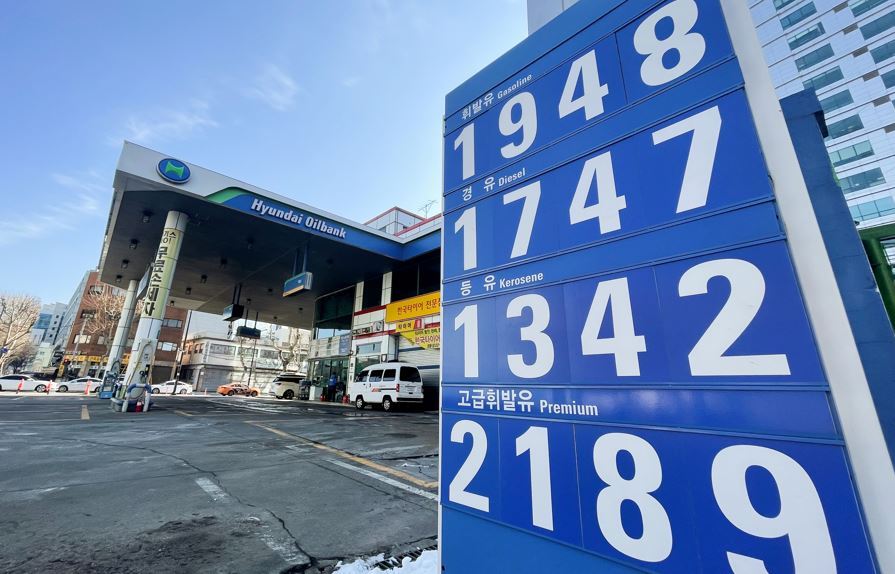 |
A signboard at a gas station in Seoul shows the rebound in gasoline prices. While the nationwide barometer climbed to 1,688.19 won ($1.41) per liter as of Tuesday, prices in some districts of the capital hover over 1,900 won. (Yonhap) |
SEJONG -- Gasoline prices in South Korea climbed for the 30th consecutive day in tandem with international crude prices, adding to the burden on households and businesses.
According to the Korea National Oil Corp., the price of gasoline rose to 1,688.19 won ($1.41) per liter on Tuesday. This marked a rebound stretching 30 consecutive days, starting from Jan. 10 after posting 1,621.3 won on Jan. 9.
The current level marked the highest in more than two months -- since Nov. 22, when it reached 1,688.88 won per liter.
The gasoline price, which had surged between September and November 2021 amid an economic recovery, slid in the winter in the wake of worries over the omicron variant of COVID-19.
But it has been rapidly bouncing back in line with another spike in international crude prices, amid lower-than-expected lethality of the omicron and steady global demand for petroleum products.
Brent crude traded over $90 per barrel to reach $92.46 on Feb. 7, having risen 18.8 percent since Dec. 31, 2021, when it was $77.78.
Prices of Dubai crude, which takes up the largest portion of Korea’s oil imports, rose 19.9 percent over the corresponding period to also hover over $90 per barrel -- from $75.66 to $90.76.
West Texas Intermediate crude recorded a 21.4 percent surge from $75.21 per barrel on Dec. 31, 2021 to $91.32 on Feb. 7.
Prices of these three have climbed to the highest in more than seven years since the fourth quarter of 2014. More and more researchers are predicting an era of $100 in crude prices in the coming months.
On Monday at the National Assembly, Deputy Prime Minister and Finance Minister Hong Nam-ki hinted at the possibility that the government would extend the expiration of the temporarily slashed fuel tax.
Since November 2021, taxes on gasoline, diesel and liquefied petroleum gas have been cut by 20 percent, set to expire in April 2022. Hong said the government would “decide whether to extend the expiry in late March or early April, if the gasoline price further climbs.”
The high crude prices and rising import prices of raw materials have continued to create instability in the nation’s consumer prices since the fourth quarter of 2021.
Further, the weak position of the local currency against the US dollar is also raising import prices of petroleum products.
(
kys@heraldcorp.com)








